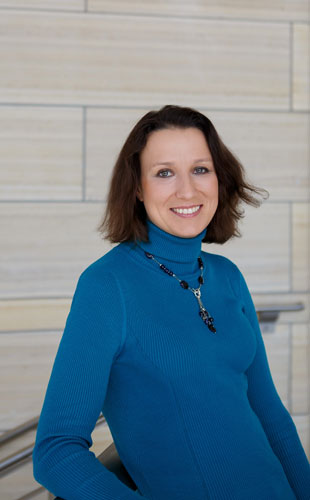 © JEN MADIGANIn her second undergraduate year at Leningrad Polytechnic Institute in Russia, which became St. Petersburg State Polytechnic University during her time there, Maria Spies had a choice to make: focus on her upcoming chemistry and theoretical physics exams or push hard to earn a spot on a nationally competitive synchronized swimming team. “The exams won,” she says.
© JEN MADIGANIn her second undergraduate year at Leningrad Polytechnic Institute in Russia, which became St. Petersburg State Polytechnic University during her time there, Maria Spies had a choice to make: focus on her upcoming chemistry and theoretical physics exams or push hard to earn a spot on a nationally competitive synchronized swimming team. “The exams won,” she says.
Her father, an engineer in her native St. Petersburg, inspired Spies’s initial interest in physics and engineering, but she soon shifted her focus from building big machines to trying to understand small ones—specifically, those involved in DNA repair. As part of her bachelor’s and master’s degrees in physics with a biophysics emphasis from St. Petersburg State Polytechnic, Spies worked in the lab of Vladislav Lanzov at the Petersburg Nuclear Physics Institute.
She began her PhD in Russia, but then earned a scholarship to study at Japan’s Osaka University in the lab of a collaborator, Seiki Kuramitsu, and finished her doctorate in biological sciences there, studying the molecular machines responsible for homologous recombination and DNA repair.1 “It was an opportunity I could not miss,” Spies says.
...














